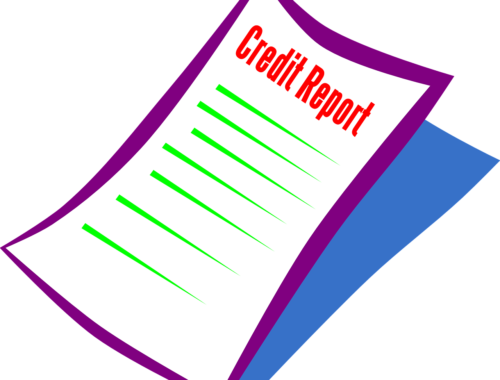
A Realists View of New Year’s Resolutions
It’s January. It’s that magical month when we make unrealistic new year’s resolutions we have no real probability of keeping. Of course we tell ourselves that this year will be different. But it never is. Need proof? Every gym in America is standing-room only from the first week of January. Every piece of equipment has someone hanging on it. Why? This is the year that they are going to get into shape! By March 1 most of these folks are gone. Why? Their goals are unrealistic. Fitness is a year-round commitment with small sometimes imperceivable improvements. No one is going to look like Arnold Schwarzenegger in three short months. The same is true about financial goals. They take time and commitment. Sometimes, the results of our efforts are small imperceivable improvements in our financial health.
Every January veterinary colleagues tell me this is the year they are going to get their financial house in order. They are going to pay down their credit card debt, get their retirement funded, get started on an emergency fund and live within a budget. They set off to tackle all of this January 1st and the results are the same as our friends at the gym. Come March, they are right back where they started.
Set 1 realistic goal
The trick to being successful is to set one realistic goal. Don’t try to accomplish everything on this list at once or you will likely end up like our gym friends. Accomplish a goal from the top of the list and work your way down. For example, don’t have a budget – get working on one. But take time to make it work before setting out on another goal. Already have a budget, evaluate your loans and retirement. Most importantly, you don’t have to wait for next January to continue working down this list. Accomplish one goal and then move on. Realistically you could accomplish all these goals before the end of the year.
Budgeting 101
Do you have a budget? If so, great! If you are like the 60% of Americans who don’t, this is where you should start your financial journey. Since you already know your income, the first step in understanding your finances is to know your expenses. My recommendation is to monitor current expenses – judgement free for – for 2-3 months. I previously discuss several Apps that, once linked to your credit and debit cards, can give you a clear picture of how you spend your money. After you understand expenses, you can decide how best to control your finances. Develop a budget and make conscious decisions about where you should be spending your money vs. where you are spending it. This would be a lot to bite off in the new year!
Student loans – ugh….
Seems like veterinary medicine and student loans go hand in hand. Make this the year you really understand your student loan options and make sure you are in the right re-payment plan for you. Understand how to make debt work for you. And before you make use of any student loan advisor, be certain you understand their motivation. Although they sound oh so professional, they may not have your best interest in mind!
On track for retirement?
Already have a working budget and understand your loan options? Great! Then let’s look at how our retirement savings are doing. Experts differ on how much you should have saved. One rule of thumb suggests that by age 30 you should have 1 times your annual salary saved; By age 40 you should have 3 times your annual salary invested; By age 50 you should have 6 times your annual salary saved; And by age 60 you should have 8 times your annual salary invested. I would suggest that these are good starting points, but you can do better. How much you will need retirement and to achieve these goals are covered in more detail here.
If your employer offered you free money would you turn it down? Probably not, and yet every year thousands of veterinarians do just that! If your work offers a 401K (or Simple IRA or 403b, etc.) and you are not investing at least the matching percentage (often 3% of salary) then you are telling your employer no thank you to free money! Be sure to read more here!
Credit card debt is evil!
So I use my credit cards all the time. They are convenient, safer than cash and earn me travel rewards. And because I pay them off each month, that’s ok. Never carry a balance on your credit card. If make the minimum payment on a $5,000 balance, it will take you 11 years to pay it off and will cost you over $3,000 in interest. If you have credit card debt, make it a new year’s resolutions to pay it off; however, make a realistic plan. Just the other day a colleague of mine confided that this was the year they were going to pay off all credit card debt. After hearing the amount of the debt and their plan I walked away knowing that this wasn’t going to happen. Make a realistic plan and get rid of the debt!
Do you have an emergency fund?
What would happen if you found yourself without a job– how long could you pay your bills? Couldn’t happen to you? If you spend any time on the NOMV Facebook group, you probably realize that some really good veterinarians have found themselves in this very situation. Maybe your position is secure, but you incurred an unexpected household expense. Could you cover it? I just discovered that my 10-year old house’s air conditioner uses a now banned type of Freon. The entire cooling system needs to be replaced. In Phoenix Arizona this is not an insignificant issue.
To protect yourself from these and other forms of mayhem, experts recommend starting an emergency fund. Eventually this fund should have 3 months take home pay, but its perfectly normal to start with much less. If you are already saving each month, congratulations. If not, this is the perfect time to set a new year’s resolution to start! we can help you set up a plan.
Checked your credit report?
There’s really nothing exciting about a credit rating. It a 3-digit number and yet it can hold sway over almost every aspect of your life. From mortgage and auto loans to applying for jobs you can be certain that a credit score will be involved somewhere. Yet according to the federal trade commission, 1 in 5 people have significant errors on their credit report. This could affect your ability to buy a house or get a job. Set a new year’s resolutions to start monitoring your report! There are apps that make this task a breeze. We discuss this in greater detail here. Already monitor your credit? Bet you haven’t checked your insurance report! It could save you a bundle.
Time to review subscriptions
Subscriptions – you know – those deals whereby if you sign up for a year (or two) you get a “discount.” These sound like great deals – but they aren’t. Companies love these because they know once they have us hooked into paying, most of us will forget to cancel. Every month we end up paying for something we don’t even use! Be certain to regularly review credit / debit card statements for these robo-vampires !
New Year’s Resolutions
Make no mistake January is the perfect time to start working on your financial health. Just be certain to be realistic. Setting unachievable new year’s resolutions will only be counterproductive. Pick one attainable goal, like developing a budget and then work your way methodically through our list. Happy New Year!




